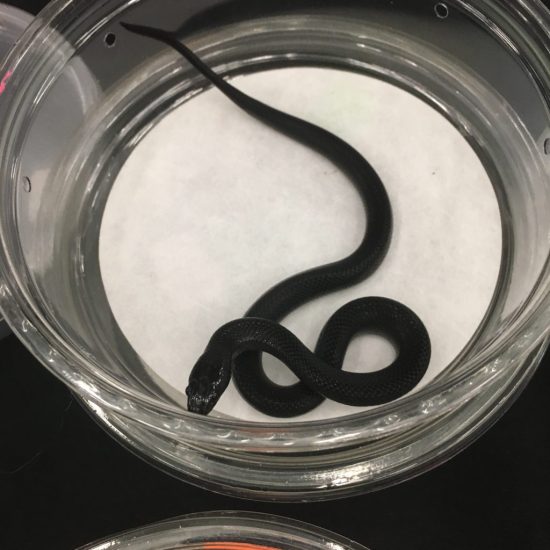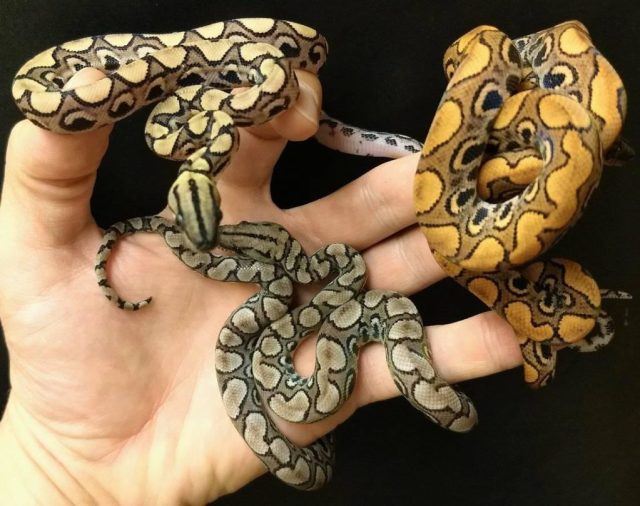I know I say this after every expo, but…BEST. EXPO. EVER!
I can’t say that this fall’s Wasatch Reptile Expo was better than Tinley NARBC or any of those other big ones since I’ve never been to them (anyone want to sponsor me? 😉 ), but in the 3+ years that I’ve been religiously attending the Wasatch Reptile Expo, this one was definitely the best yet. Even though the event coincided with several other expos last weekend, there was still a huge variety of species represented, and strategic crowd control measures made the overall experience much less claustrophobic than usual.
This fall’s expo also boasted a wealth of fun herp-related merch such as vendor tee shirts, necklace pendants made from shed skin, reptile- and amphibian-themed earrings, reptile jigsaw puzzles, and various reptiles and invertebrates preserved in acrylic. It was hard not to blow all of my money on those alone! (although I did indulge in a Nightshift Exotics tee that is now my new favorite thing)
Prices have been scrubbed from the photos in order to respect the breeders’ and vendors’ special expo pricing.

Runners-Up
Before we get to the Top 10, here are the animals that *almost* made the cut. ReptiFiles polled the local reptile community to find out what which animals merited special mention for this expo, and this is what they wanted to highlight.
These two were the favorites by a landslide:


And here’s the others (tap the arrows on either side or swipe to scroll):





Alright, now let’s get to the good stuff!
10. False water cobra @ Animal Ark Orem
False water cobras (Hydrodynastes gigas) are a semi-aquatic, rear-fanged venomous snake native to South America. They get their name from their tendency to flatten their neck when threatened, much the same as a cobra. As adults they get 4-7′ long, but unlike most snakes, where the females are larger than males, male false water cobras can grow significantly larger than females. And although venomous, their venom is not considered dangerous to humans beyond some localized tissue damage and considerable pain and swelling. Fortunately, this species is not particularly prone to biting, and the individual that I got to handle a bit at the booth was an absolute doll! Part of me really regrets not taking this sweetie home. While it was a tough decision between Prismatic Reptiles’ bamboo ratsnake and this false water cobra, eventually Animal Ark won the #10 spot. They really outdid themselves this year with an enormous diversity of rare and interesting reptiles, including:
While it was a tough decision between Prismatic Reptiles’ bamboo ratsnake and this false water cobra, eventually Animal Ark won the #10 spot. They really outdid themselves this year with an enormous diversity of rare and interesting reptiles, including:
- African house snake
- Albino Argentine tegu
- Australian knobtail gecko
- Australian tree skink
- Black and white Argentine tegu
- Chinese cave gecko
- Indian sand boa
- Leachie gecko
- Madagascar hognose (fun fact: all 3 hognose genera were present at this fall’s expo!)
- Malaysian cat gecko
- Northern spiny tailed gecko
- Rough-scaled sand boa
- Sandfish skink
- Sunglow morph boa
- Texas alligator lizard
- Yellow ackie monitor
9. Yellow anaconda @ TSK Supply
When most people think of an anaconda, they think of the 16′ long, tree-trunk-thick, 150lb giant South American snake. The yellow anaconda (Eunectes notaeus) is the green’s smaller and more manageable cousin, averaging only 10-14′ long. It was a pleasant surprise to see some available at the expo. In fact I was so stunned to see some present that despite recognizing the coloration, pattern, and head shape, I had to ask to confirm. The man I spoke with at TSK’s table said that the two I saw were the last of the several they had brought to the expo. Let’s hope the snakes went to responsible new owners!
8. Super pale chahoua gecko @ Nightshift Exotics
Chahoua geckos (Mniarogekko chahoua) are an arboreal gecko species similar to more familiar crested and gargoyle geckos. These geckos look something like a chubby, loose-skinned gargoyle gecko, and are characterized by a mottled pattern which helps them blend in on bark and lichen. This chahoua gets the #8 spot because I’ve never seen such a pale chahoua before! Every one I’ve seen has been richly pigmented, but this one looked like a Monet painting in pastels. Absolutely gorgeous! This is one of Nightshift’s breeders, so I can’t wait to see what they produce. Other highlights from Nightshift’s table:
Other highlights from Nightshift’s table:
7. Melanistic Leonis phase kingsnake @ Prismatic Reptiles
Nuevo Leon kingsnakes (Lampropeltis mexicana thayeri) are a colubrid snake species native to the states of Nuevo Leon and Tamaulipas in Mexico. There are two phases of Nuevo Leon kingsnake: MSP and Leonis; one has a tricolor banded pattern that looks like a milksnake, while the latter is an alternating pattern with red saddles. This past year they produced a completely black melanistic morph Leonis, which is a striking alternative to the trendy Mexican black kingsnake. It should be noted that all of Prismatic Reptiles’ snakes are CBB (captive born and bred) — an impressive boast for such a wide variety!
It should be noted that all of Prismatic Reptiles’ snakes are CBB (captive born and bred) — an impressive boast for such a wide variety!
6. Rainbow boas @ Alpine Reptiles
Brazilian rainbow boas (Epicrates cenchria cenchria) are a South American snake prized in the reptile hobby for their vivid orange and red coloration and the fantastic rainbow iridescence that becomes visible in sunlight. They’re not a terribly common sight at the Wasatch Reptile Expo, so I was delighted to see a breeder present this time around. Alpine Reptiles has been keeping rainbow boas since 1999, and is currently working on producing the world’s first 4 gene combination morph: axanthic het rizo het sharp ghost. We wish them the best of luck in this project! Other highlights from Alpine Reptiles:
Other highlights from Alpine Reptiles:
5. Hypo champagne GHI morph ball python @ Pets N Such
Ball pythons (Python regius) are a small to medium-sized constrictor snake native to Africa, and they are ridiculously popular. That means that they also tend to be ridiculously common at reptile expos, a fact which many reptile hobbyists have complained about. And while I can’t say I don’t like seeing these adorable little guys every expo, I have to limit myself to highlighting just one — and this most recent expo made the decision easy for me. Isn’t it spectacular?
4. Giant leaf-tailed gecko @ Pets N Such
Giant leaf-tailed geckos (Uroplatus fimbriatus) grow to 11-13″ long and have distinctive light-colored eyes with red veining. As members of the fimbriatus group, their camouflage is designed to blend with bark, lichen, and moss, and they have a large dermal fringe that makes them look like they have a beard. Leaf-tailed geckos are arguably my favorite lizard genus EVER. Magical camouflage abilities and sniper-esque hunting ability in a just-awkward-enough-to-be-cute package. They’re slowly gaining popularity in the reptile hobby, although this is mostly restricted to the mossy leaf-tailed gecko and the satanic leaf-tailed gecko. And at this fall’s Wasatch Reptile Expo, there were TWO giant leaf-tailed geckos!
3. Super Fire morph boas @ R&T Reptiles and Supplies
The Central American boa (Boa imperator) is the most common “true” boa in the hobby. Unlike their cousins, B. constrictor constrictor, they stay fairly small between 5-7′ long and have lots of stunning morphs to choose from. Among the most notable of these morphs is the Super Fire morph, also known as Princess Diamond, and I was floored to see not one, but TWO of them at the Fall 2018 Wasatch Reptile Expo! Funny/embarrassing story: When I visited R&T Reptiles’ table, I completely ignored the Super Fire boas because I thought they were Super Fire morph ball pythons (the two morphs look extremely similar) and the sunglow morph looked more interesting. It wasn’t until the breeder told me to take another look that I realized my mistake! Lessons learned: 1) Make no assumptions and 2) ignore nothing. Other highlights from their table:
Other highlights from their table:
2. Solomon Island skinks @ Mark’s Ark
Solomon Island skinks, also known as monkey-tailed skinks or prehensile-tailed skink (Corucia zebrata) are the largest known species of skink. They are native to the Solomon Islands northeast of Australia. Populations of Solomon Island skinks are vulnerable in the wild, and while they have been successfully bred in captivity, they only produce a single baby at a time. These skinks are some of the only reptiles to demonstrate maternal behavior. Due to slow rates of breeding and exportation bans, Solomon Island skinks are rare in the pet trade. Still, they’re a fascinating species and I plan to have one someday once I have the space to keep it properly. For anyone in Utah who wants to see an adult Solomon Island skink, visit the Hogle Zoo. (I should mention that Animal Ark’s table also featured a Solomon Island skink, but it was hiding when I stopped by.)
1. Honey Ghost morph short-tailed pythons @ CAJ Herps
Borneo short-tailed pythons (Python breitensteini) are thick-bodied, medium-sized snakes native to Southeast Asia. They are commonly (mistakenly) lumped together with blood pythons, which a different species. Short-tailed pythons are generally considered to have more docile temperaments than blood pythons, but the fact is that with proper husbandry and smart handling practices, both can make very pleasant pets.
Chris Jensen has been working with blood pythons and short-tailed pythons for the past 8 years. Although his primary project is Borneo short-tails, he also works with Sumatran short-tails and blood pythons. The Fall 2018 Wasatch Reptile Expo was his first time vending, so special congratulations to Chris for taking the #1 spot!
Other highlights from CAJ Herps’ table:

Blood python (Python brongersmai). Daaaaaaang — you don’t get this kind of color from a run-of-the-mill breeder!

This picture didn’t turn out quite as clear as I hoped, but it was such a funny moment that I had to include it here. Blood pythons can be sweet, too!
Congratulations CAJ Herps for taking #1 on your first time vending, despite some stiff competition! I hope to see you become a regular!
Honorable Mentions
These are the miscellaneous aspects of the expo that didn’t quite make the cut for the Top 10, but we think still made a valuable contribution to the Fall 2018 Wasatch Reptile Expo:















That’s it for this fall! Were you able to attend the Fall 2018 Wasatch Reptile Expo?
Tell us about your favorites in the comments below!
Tell your friends -
- Click to share on Facebook (Opens in new window) Facebook
- Click to share on X (Opens in new window) X
- Click to share on Tumblr (Opens in new window) Tumblr
- Click to share on Reddit (Opens in new window) Reddit
- Click to share on Pocket (Opens in new window) Pocket
- Click to share on WhatsApp (Opens in new window) WhatsApp



















Glad you enjoyed the post, Jay! It’s always better to wait until you’re ready for a pet than to jump in before you can afford its care. 🙂
Thanks for the update. Im still interested in getting my Ball Python. I just dont have the extra funds to do it right, so for now I will wait. But thanks again for sending me the Expo.
His,
Jay…